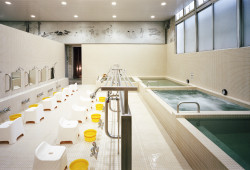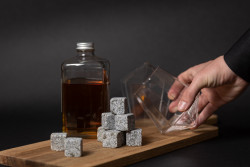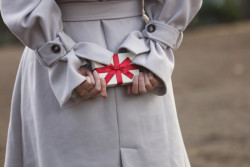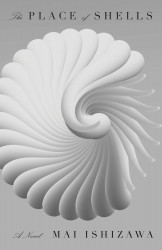
November 12, 2009
Paris, Love Song for You
Accordionist Daniel Colin is pleased and amused by the resurgence of interest in French musette
By Metropolis
Originally published on metropolis.co.jp on November 2009
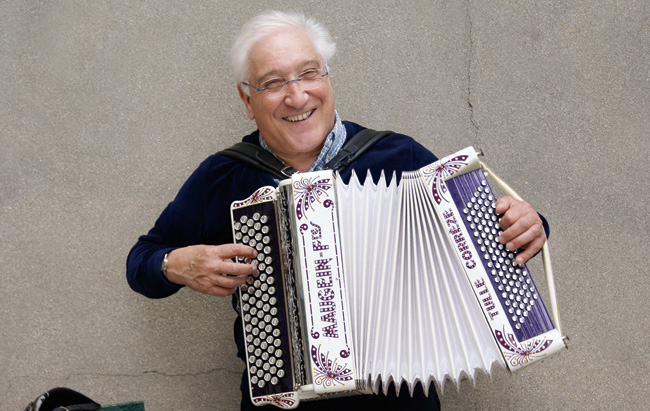
Courtesy of Respect Record
In music, what goes around often comes around. Only a decade or two since the accordion was the laughing stock of musical instruments, its honeyed tones are at the center of newly rediscovered forms from tango to gypsy swing to French musette.
It’s the latter that is the subject of today’s interview with accordion master Daniel Colin and his partner, guitarist Dominique Cravic.
“I don’t know exactly why, but there is a great revival,” the Frenchman says in an interview at a Shibuya cafe. Colin and Cravic are back in Tokyo for the latest in a series of annual performances. “The public likes it because it sounds fresh and genuine to them. Musette started in the ’20s. It was recorded first on 78s, before big industry took charge of music. You never know when music will re-emerge.”
Musette was born in Paris, where the songs of settlers from the French countryside mixed with the accordion music of Italian immigrants. Created to entertain these newcomers and the lowlifes who ran the dance halls and prostitution and booze rackets in the Bastille district, it’s an upbeat music in which tales of romance and intrigue are set to sprightly waltz and polka rhythms.
Now 68, Colin learned the accordion in the early postwar years, before rock and roll swept the world. “As everywhere, when rock came in the ’60s, all the traditional styles were flushed away,” the somewhat younger Cravic chips in, explaining his own interest in musette. “But after 20-30 years, the younger people began to look back at their roots, and the accordion came back.”
Cravic notes that the appeal of the accordion and traditional music is not simply a matter of nostalgia. “The technique of accordion music is very complete,” he says. “It’s an instrument that can be impressive even for young people. They are used to electric guitars, keyboards, and usually this music is not complex. But when we have the experience of playing in front of different musicians in France who are involved in rap or whatever, when they see and hear and feel Daniel, it’s very impressive for them. From the mid ’80s, accordion came back in all sorts of different fields. Now you can hear accordion players in rap or even punk.”
The accordion revival took hold in Japan in the ’90s, rooted in the continued popularity here of musette and its more sedate cousin, chanson. Among its exemplars are virtuoso Coba and young chanteuse Uri Nakayama.
Colin first met Coba in 1994 when they collaborated on an album and concert that presented some of France’s best accordionists to a Japanese audience. Since then he has been back numerous times and had the chance to observe and benefit from the Japanese enchantment with classic French music.
“Japanese are an island people—they were isolated for many years,” Colin reflects. “Now, when they get to know many cultures, they become very concentrated and in love. At first Coba was kind of unique, but now there are more and more players. This is the third time here with [singer] Claire [Elziere], and after the concerts people come up to us. They tell us they are very moved.”
The downside is an oftentimes clichéd view of French culture.
“For me, the Japanese have a dreamy image of France, especially Paris,” he says. “In a way, it’s authentic, but it’s also a postcard view. On the one hand, our show is treated this way—they have stars in their eyes—but on the other it’s not something to be dismissed so easily. Sometimes they sing along because they know all the songs from the ‘40s to ‘60s.”
Japanese roots music label Respect Record has released two albums in advance of the upcoming concerts: Accordeon au Coin de la Rue de Paris features Colin performing his favorite street-corner classics; Elziere’s Chansons d’Amour de Paris is the second in a series of reinterpreted chanson standards.
“The first concert was just Daniel and I,” Cravic says about the evolution of their Japan visits. “Then we went with Claire. Now we will be four musicians from Paris… So we have many different aspects of musette, with tango, influences from Spain, from the east, from Gypsy music and jazz—because musette was not a pure thing but a meeting of different cultures, milieus and countries. And we have instrumental parts, French chanson parts, and some Japanese guests… In the French songs you will hear other tracks that are linked to Japanese sounds, which to me fits perfectly but is like using a new color.”
“Paris, Love Song for You”
Claire Elziere performs chanson and musette, with accordionist Daniel Colin. Dec 12, 2pm; Dec 13, 1:30pm, ¥6,000 (adv)/¥6,500 (door). Hakuju Hall, Yoyogi Hachiman. Tel: CN Playguide 0570-08-9990.
